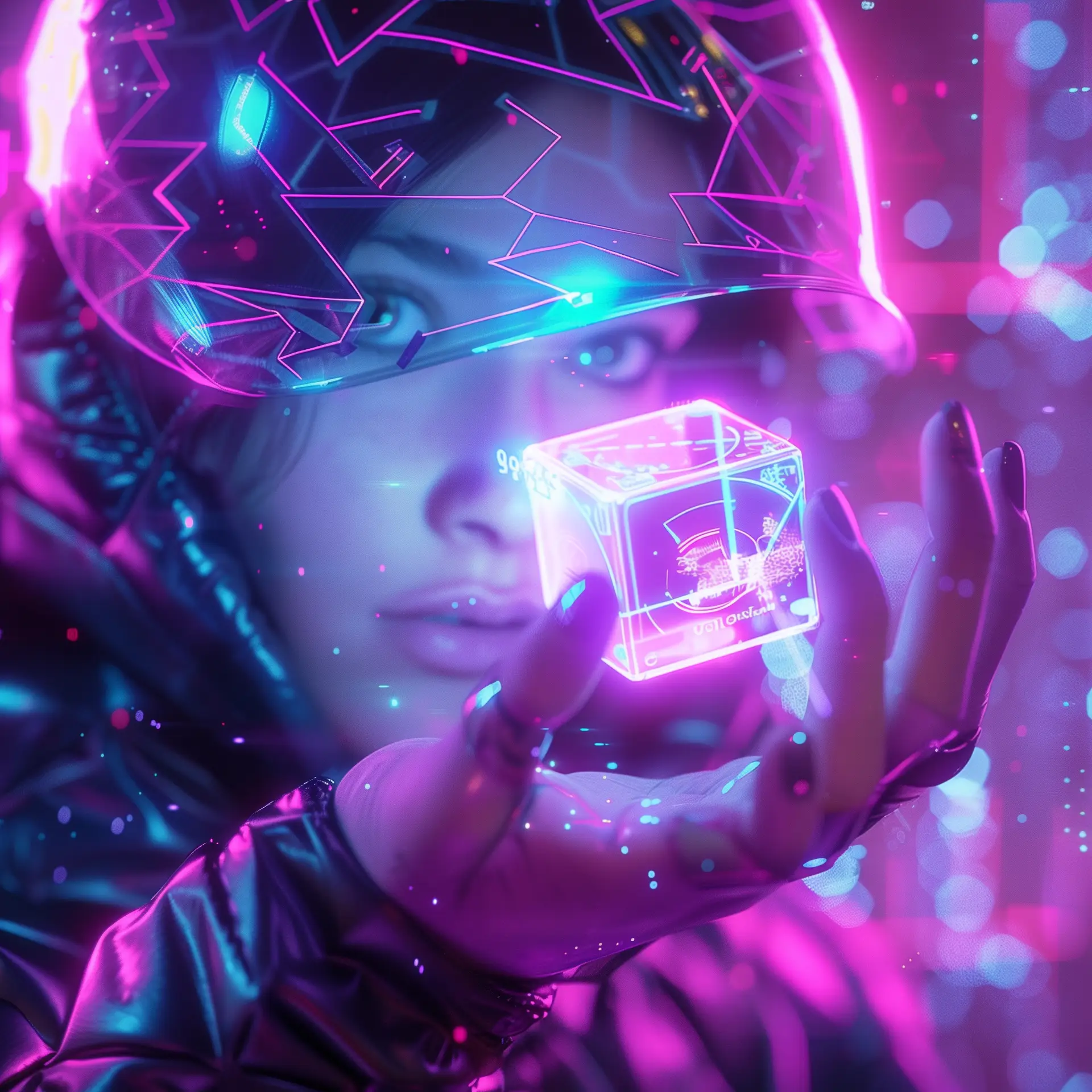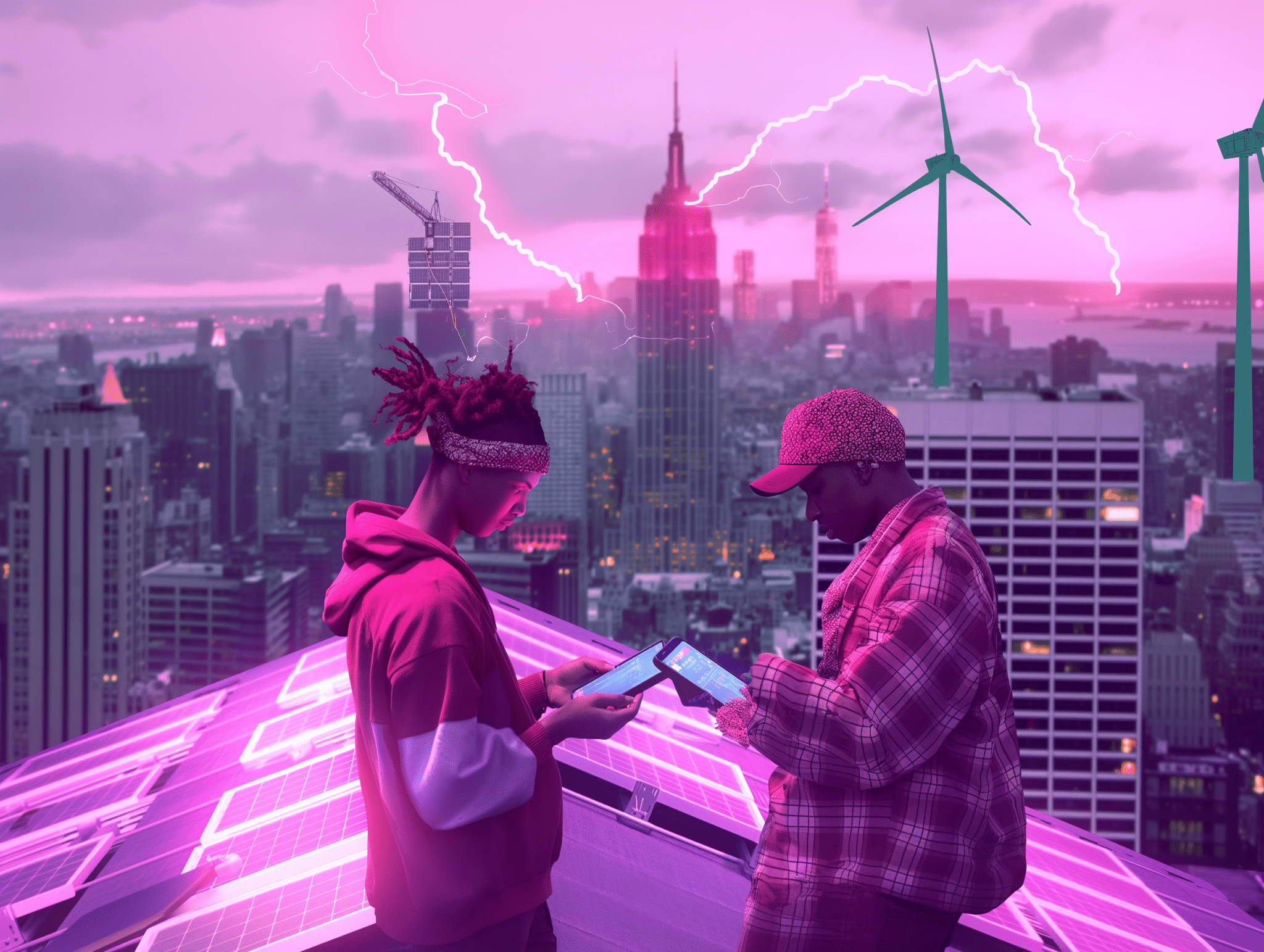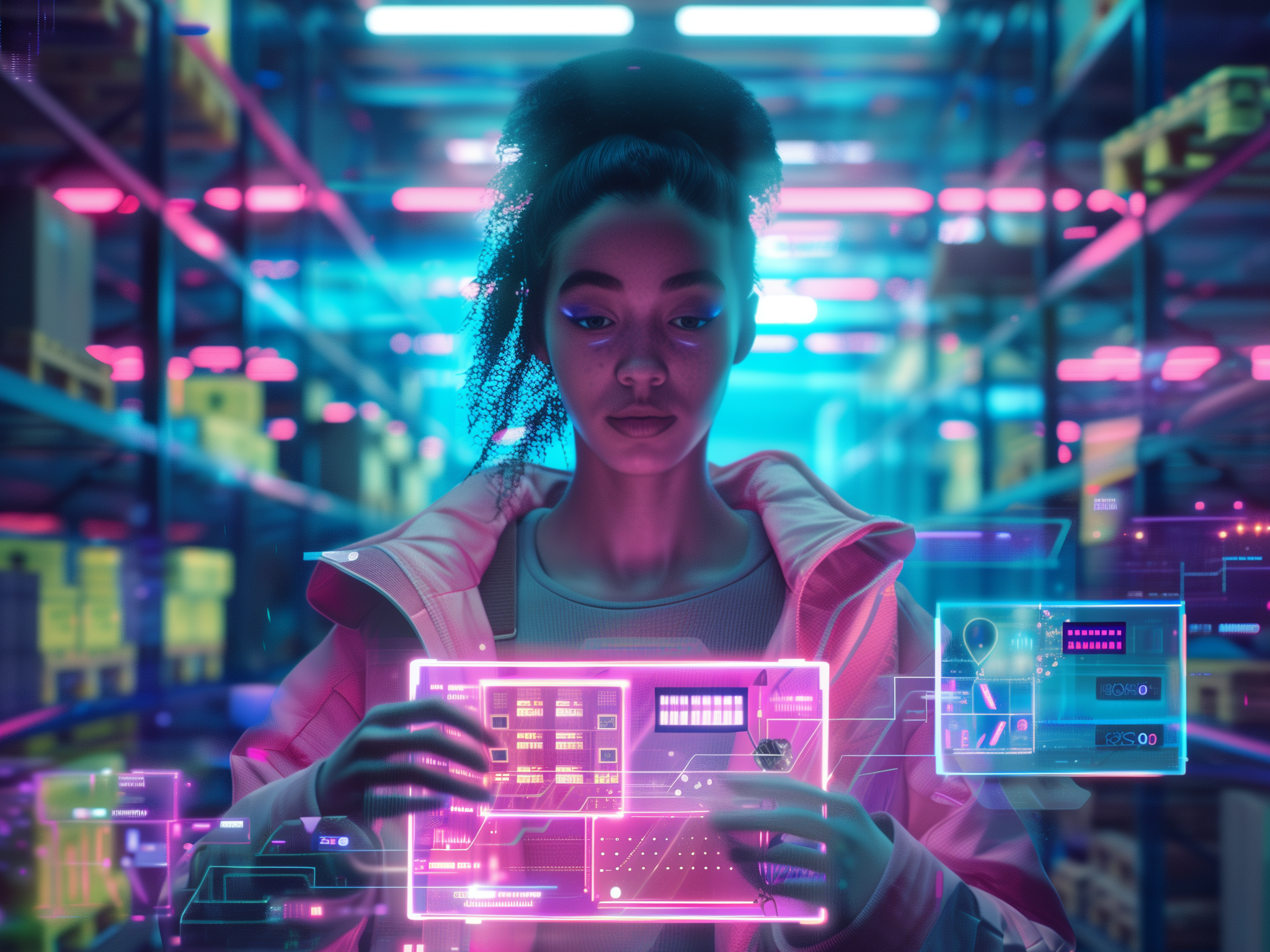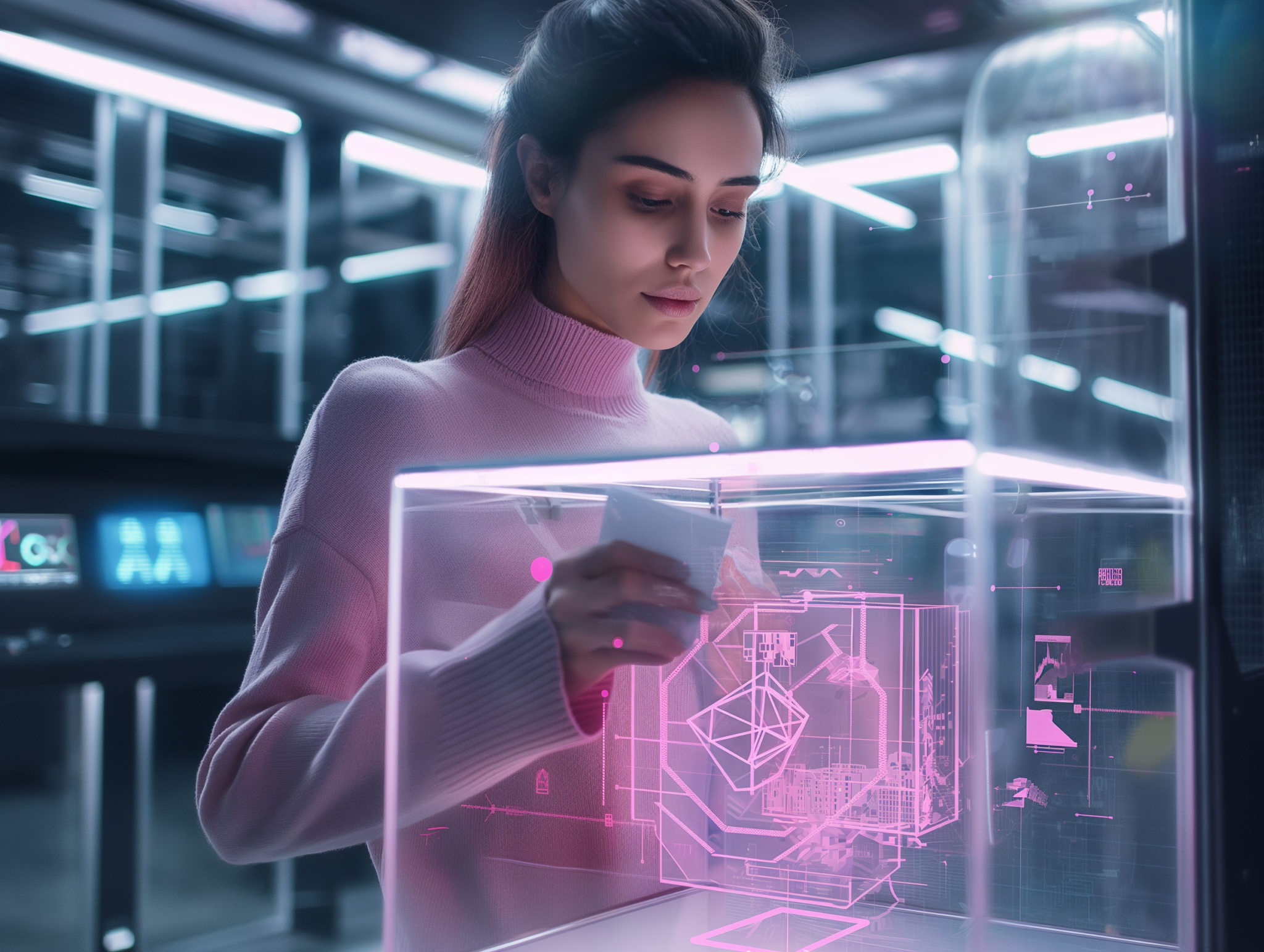The gaming industry is continuously evolving, with technological advancements shaping the future of how games are developed, played, and monetized. One of the most groundbreaking technologies in the gaming world is blockchain. Blockchain technology, known for its decentralized and secure nature, enhances player ownership, offering new ways to create, trade, and secure in-game assets. This article explores how blockchain is transforming the gaming industry by empowering players and developers alike and what this means for the future of gaming.
Understanding Blockchain and Its Relevance to Gaming
What is Blockchain?
Blockchain is a decentralized digital ledger that records transactions across multiple computers to ensure the data cannot be altered retroactively. Each block in the chain contains several transactions, and every time a new transaction occurs, a record of that transaction is added to every participant’s ledger. This makes blockchain highly secure and transparent.
How Blockchain Benefits Gaming
- Transparency: All transactions and ownership records are transparent and immutable, reducing fraud and cheating.
- Security: Blockchain’s decentralized nature makes it resistant to hacks and data breaches, protecting player assets and game data.
- Ownership: Players can truly own their in-game assets, which can be traded, sold, or used across different games and platforms.
Enhancing Player Ownership with Blockchain
True Ownership of In-game Assets
In traditional gaming models, players purchase or earn in-game items stored on centralized servers controlled by the game developers. This means that players do not truly own these assets and can lose them if the game shuts down or the servers are compromised. Blockchain changes this by enabling true ownership of in-game assets through non-fungible tokens (NFTs).
What are NFTs?
Non-fungible tokens (NFTs) are unique digital assets stored on the blockchain. Unlike cryptocurrencies such as Bitcoin, which are fungible and identical in value, NFTs are one-of-a-kind and can represent ownership of a specific item or piece of content. NFTs can represent in-game items like weapons, skins, characters, and virtual land in gaming.
Benefits of NFTs for Players
- Control and Security: Players ultimately control the NFTs in their digital wallets. This means that players retain ownership of their assets even if a game shuts down.
- Interoperability: NFTs can be used across different games and platforms that support them, allowing players to carry their assets from one game to another.
- Monetization: Players can trade or sell their NFTs on various marketplaces, providing opportunities to earn real money from gaming activities.
Case Studies of Blockchain in Gaming
Axie Infinity
Axie Infinity is a blockchain-based game in which players can collect, breed, and battle fantasy creatures called Axies. Each Axie is an NFT, giving players true ownership of their creatures. The game has a robust economy in which players can earn cryptocurrency by playing, making it a prime example of how blockchain can create value for gamers.
Decentraland
Decentraland is a virtual world where players can buy, sell, and build on virtual land plots represented by NFTs. Players have complete control over their land and can monetize it by creating and hosting experiences for other users. Decentraland demonstrates how blockchain can create entirely new gaming experiences and economies.
The Sandbox
The Sandbox is a virtual world where players can create, own, and monetize their gaming experiences using NFTs and the platform’s cryptocurrency, SAND. Players can build games, assets, and applications on their land plots, fostering a decentralized gaming ecosystem where creativity and ownership are rewarded.
Challenges and Solutions
Technical Complexity
Implementing blockchain in games can be technically challenging. Developers need to integrate blockchain protocols, create NFTs, and ensure secure transactions. This requires a high level of expertise and can be resource-intensive.
Solution: Middleware solutions and platforms like Enjin and Immutable X are emerging, offering developers easy-to-use tools and SDKs to integrate blockchain features into their games without needing deep technical knowledge.
Scalability
Blockchain networks need help with scalability, especially when handling many transactions simultaneously. This can lead to slow transaction times and high fees, negatively impacting the gaming experience.
Solution: Layer 2 solutions and sidechains are being developed to improve scalability. For example, Ethereum 2.0 aims to significantly increase the network’s capacity and reduce transaction costs, making it more suitable for gaming applications.
Regulatory Concerns
The regulatory landscape for blockchain and cryptocurrencies is still evolving. Different countries have different regulations, creating uncertainty for game developers and players.
Solution: Developers must stay informed about the regulatory environment and work with legal experts to ensure compliance. Additionally, advocating for clear and supportive regulations can foster innovation and the adoption of blockchain in gaming.
The Future of Blockchain in Gaming
Integration with Virtual and Augmented Reality
Combining blockchain with virtual reality (VR) and augmented reality (AR) can create immersive gaming experiences where players genuinely own their virtual assets. Imagine owning a virtual sword in a VR game that you can trade or use in multiple games.
Decentralized Game Development
Blockchain can enable decentralized game development, where developers and players collaborate to create and govern games. Decentralized Autonomous Organizations (DAOs) can be used to manage game development, funding, and decision-making processes, leading to more community-driven and inclusive gaming experiences.
Enhanced Monetization Models
Blockchain can revolutionize monetization models in gaming. Beyond traditional methods like in-game purchases and advertisements, blockchain allows for innovative models such as play-to-earn, where players are rewarded with cryptocurrency for their time and effort spent in the game. This can create new economic opportunities for gamers around the world.
Environmental Considerations
Energy Consumption
One criticism of blockchain technology, particularly proof-of-work (PoW) blockchains like Bitcoin, is the high energy consumption associated with mining activities. This raises environmental concerns, especially as blockchain adoption in gaming grows.
Solution: Transitioning to more energy-efficient consensus mechanisms, such as proof-of-stake (PoS), can mitigate these concerns. For instance, Ethereum’s move to PoS with Ethereum 2.0 aims to reduce its environmental footprint significantly.
Promoting Sustainable Practices
Blockchain can also promote sustainable practices in gaming. For example, games can reward players with NFTs or cryptocurrency for engaging in environmentally friendly activities, such as virtual reforestation projects. This can raise awareness and encourage positive environmental actions.
Conclusion
Blockchain technology can revolutionize the gaming industry by enhancing player ownership, security, and monetization. With NFTs, players can gain true ownership of their in-game assets and engage in dynamic virtual economies. Despite challenges such as technical complexity and regulatory concerns, the benefits of blockchain in gaming are substantial. As technology advances, we can anticipate even more innovative and immersive gaming experiences powered by blockchain, ushering in a new era of player empowerment and creativity.
















